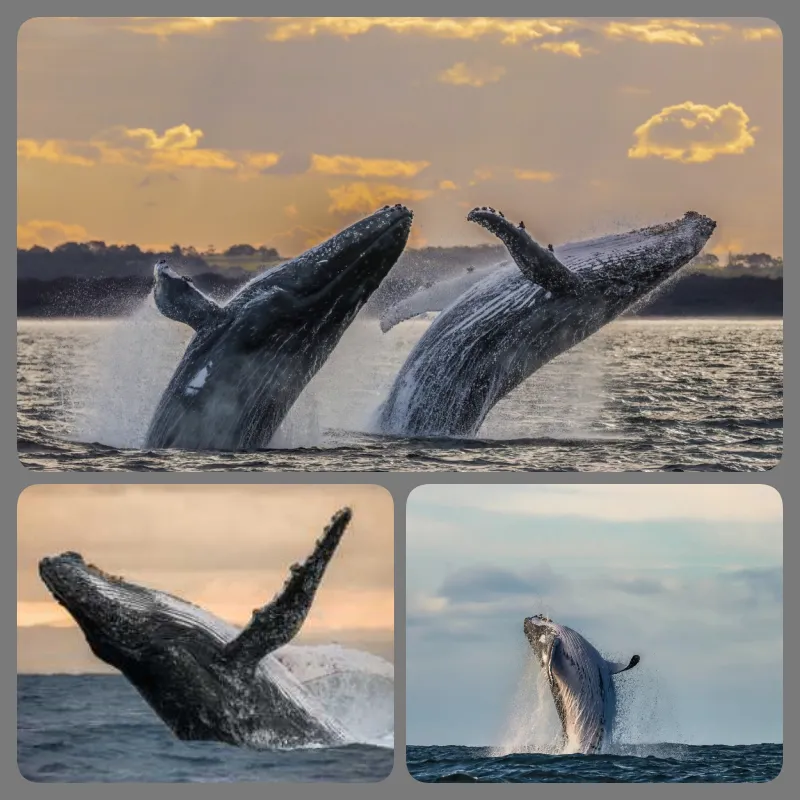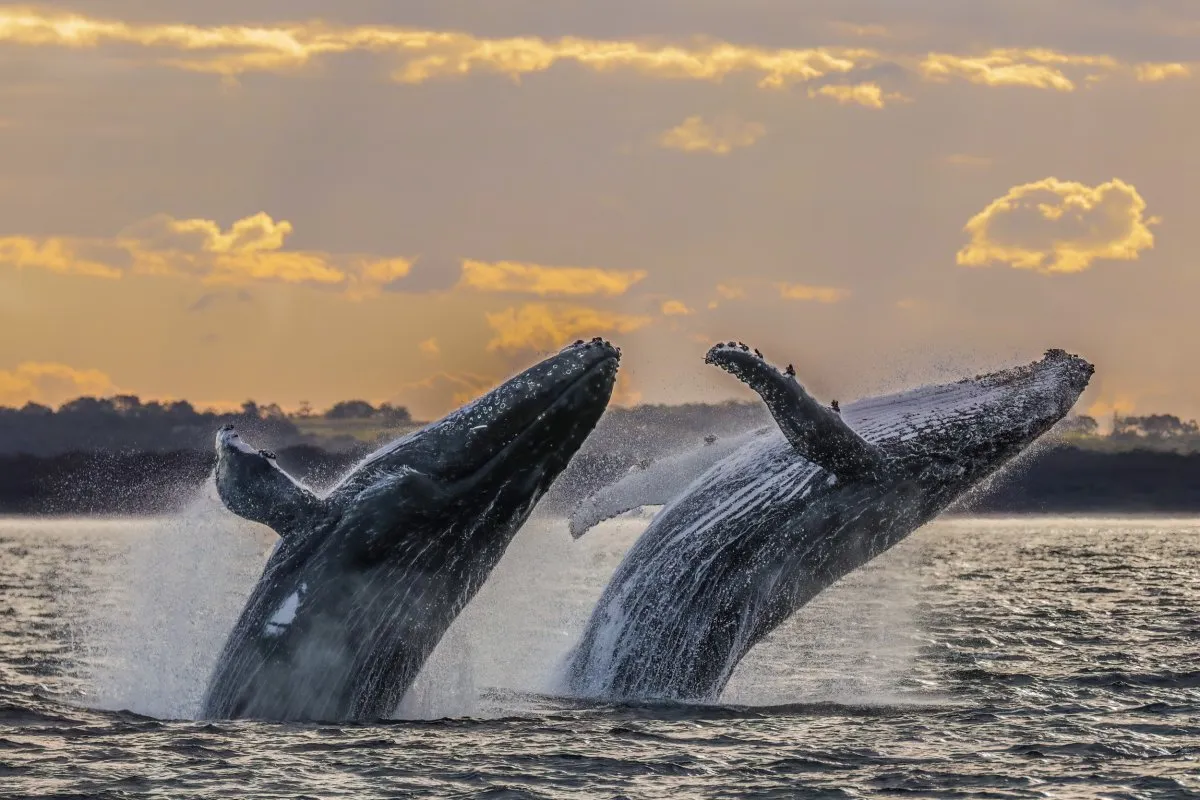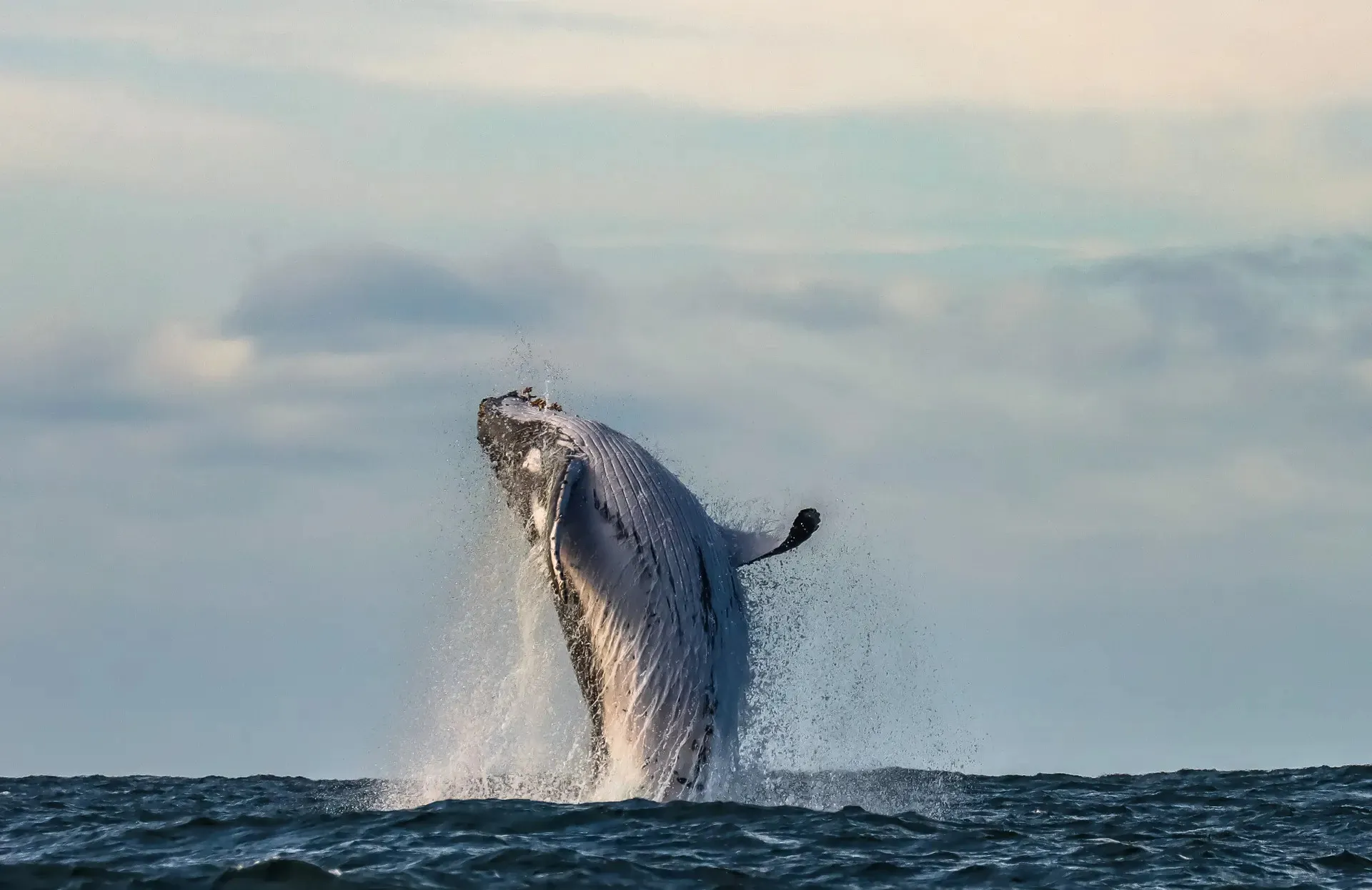
Pair of Humpback Whales Swim Upstream in Brisbane River
Australia – This week, scientists discovered two female humpback whales swimming upstream in the Brisbane River, weaving between cargo ships in the bustling port area. Olaf Meynecke, a manager and researcher with Griffith University’s Whale and Climate Program, speculates that the whales might be trying to evade males pursuing them for mating, according to a report by Newsweek on August 12.

While it’s not uncommon for whales and dolphins to venture upstream in search of food, many end up dying before they can return to the ocean. “It’s possible these whales got lost upstream. A famous example from California in 1985 involved a humpback whale named Humphrey, who swam up the Sacramento River but eventually made his way back to San Francisco Bay and out to sea,” said Bill Keener, a researcher at the Marine Mammal Center.
During the winter months in the Southern Hemisphere, humpback whales migrate north from the icy waters of Antarctica to the warmer tropical seas off northern Australia, such as the Great Barrier Reef in Queensland and the Ningaloo Reef in Western Australia. These areas offer safe, warm waters for mating and raising calves. After the breeding season, the whales begin their journey back to Antarctica around September, meaning the current migration is nearing its end.
Humpback whales congregate and mate off the coast of Queensland, where the Brisbane River meets the sea. Meynecke suggests that the two female whales might have ventured into the unfamiliar freshwater to escape the advances of a male. The mating behavior of humpback whales is highly competitive, with males aggressively vying for the attention of females. They often form temporary groups around a female, with the strongest male staying closest to her while others challenge for his position.

If a female whale is uninterested in mating, she may try to swim away. “If the female is already pregnant, she might not want to conceive again the following year. There’s always competition among the males. Mother whales and their calves often seek out bays to rest and avoid close interactions with harassing males,” Meynecke explained.
Researchers are also concerned about the risk of the two female whales colliding with boats on the Brisbane River. “People may not be aware of the whales’ presence. They have to surface for air and could potentially collide with vessels,” Meynecke warned.



